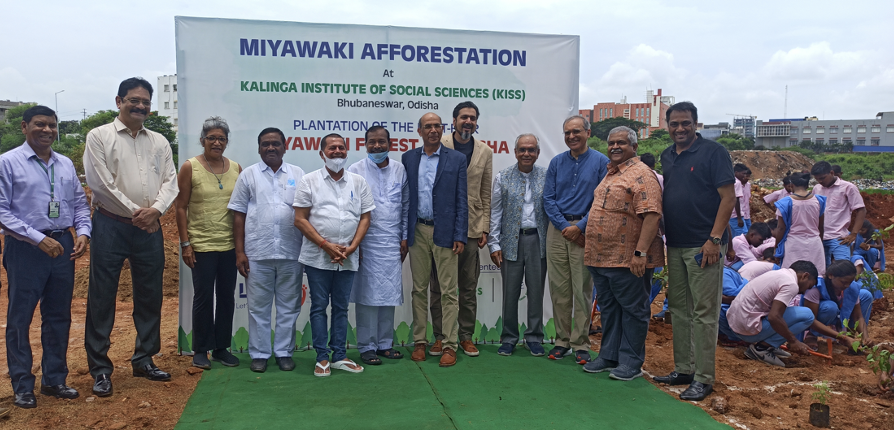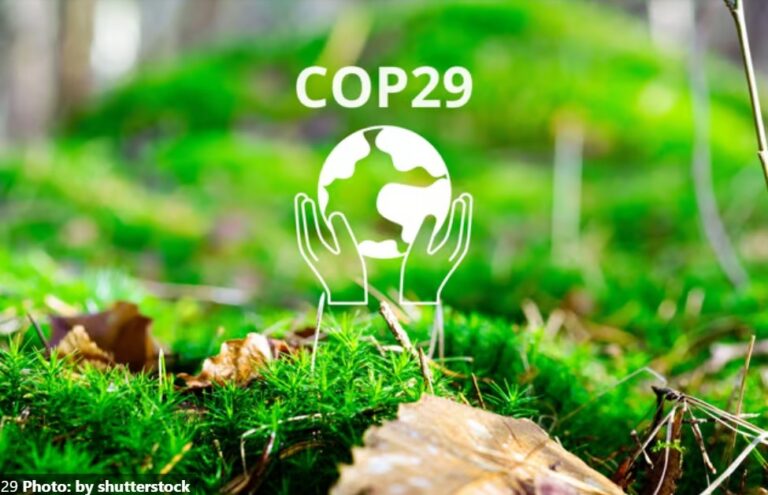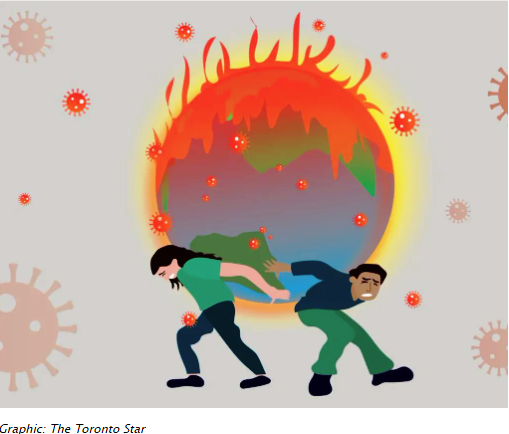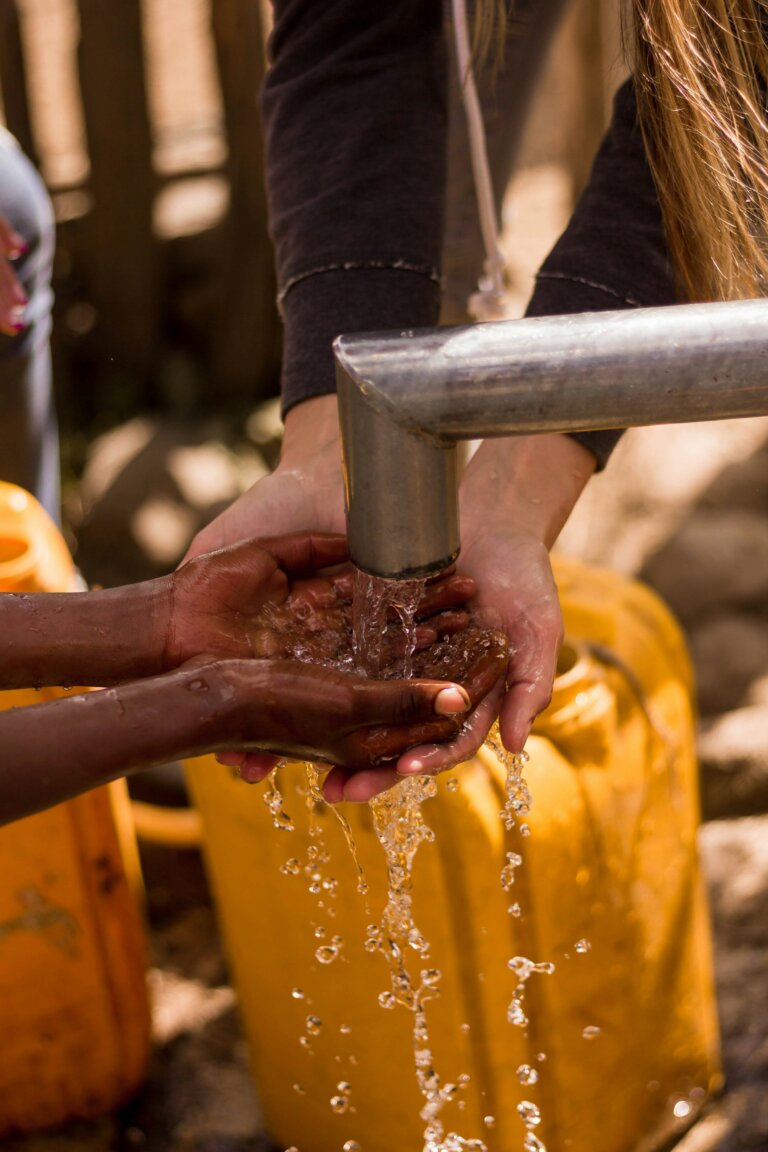High economic growth over the last few decades has come at the expense of escalating pollution, with disruptive impacts on human and animal health, land and forest ecosystems, and earth systems processes such as the climate. Since 1850, the earth’s average temperature has risen by 0.76 degrees and rising sea levels may displace 200 million people by 2100. The Bay of Bengal region, where countries such as Sri Lanka, India, Bangladesh, Myanmar, Thailand, Malaysia, and Indonesia are home to a fourth of the global population are especially vulnerable to these challenges.
Climate change and climate induced disasters and extreme weather events pose a major threat to poverty reduction, health, and development in developing countries, including India. Therefore, the scarcity of ecosystem services must be reflected in all market, business, and public decisions. The state of Odisha, located on the eastern coast of India, has been affected by numerous major natural disasters in the last century, Fani, Amphan and Yaas to name a few. Climate change presents an immediate challenge to Odisha for two pressing reasons. Its geophysical location – a 480 km coastline prone to climate-mediated cyclones, coastal erosions, and water resources dependent on monsoons – makes it particularly vulnerable. Secondly, the urgent need to ensure better living standards for a large percentage of its population.
KISS presents an out-of-the-box model for public-private collaboration – leading the empowerment, not assimilation of marginalized communities
The latest State Action Plan on Climate Change (2018-23) includes 58 specific actions for the state to design investments to facilitate adaptation to changes in climate. However, even as it responds to climate on a war footing, the government needs to work with stakeholders to design and execute a comprehensive programme of action to reverse climate change. NGOs and academic institutions must come forward with a proactive role, particularly in the domain of implementation and action.
Kalinga Institute of Social Sciences (KISS), the largest academic institution for indigenous communities and cultures in the world offers a case study of how to play such an exemplary role. It sensitizes people through seminars and courses for youths on climate change, optimizes eco-friendly practices inside the campus, builds community resilience and encourages the participation of indigenous people in mega plantation drives. Innovative initiatives like Miyawaki Afforestation to promote urban forestry is a recent example of KISS effort to ensure sustainable development.
KISS is an institution committed to combating climate change in academic (education, awareness, and advocacy) and field (measurement, analysis, recommendation, and practice) settings, and the institution is showing how to achieve the SDGs, with particular emphasis on goal 13 (Climate Action).

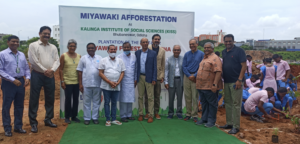

KISS plants one million saplings per year, with the staff, students and members of indigenous communities joining hands to promote plantation. It gives indigenous people of Odisha the opportunity to lead the collective resistance against global warming since they have long developed sustainable solutions for the conservation of natural heritage, which deserve wider application. With support from SayTrees, KISS became the first university in India to create a Miyawaki Forest, a unique way to create a native urban forest ten times faster than it takes to grow a natural forest. KISS initiated the Miyawaki afforestation in partnership with industry stakeholders to make the university one of the few educational institutions worldwide to have a full-grown native forest inside the campus.
When I visited KISS, I saw something in the eyes of the students – the wish to learn more and contribute to society. Climate change, environmental change, and pollution are challenges that we have to solve. – Mr. Erik Solheim, President, Green Belt and Road Initiative & Former Executive Director, UN Environment Programme
KISS has received global recognition for its sustainable practices. In 2016, the National Geographic channel documented KISS’s best practices for clean energy use in a documentary on its Mega Kitchen. In 2017, KISS received the 18th Energy Globe Award in the Fire Category at the Presidential Palace in Tehran, Iran, for effective reduction of the carbon footprint on the campus through sustainable infrastructure. Most recently, KISS was awarded the UNESCO’s 2022 King Sejong Literacy Prize for its ‘Mother Tongue-Based Multilingual Education’ programme, which tackles the challenges of poor retention of indigenous students in elementary schools due to classroom language barriers and teachers’ incapacity to deal with multilingual and multicultural classrooms effectively.
In developing countries, the fight against climate change goes hand in hand with improving living standards and eradicating poverty. This calls for a multi-sectoral approach, generating effective local-level strategies and solutions for global problems such as climate change. Effective climate action requires NGOs and academic institutions to collaborate with the state. KISS is at the heart of such a multi-sectoral approach and its practices demonstrate what can be achieved through innovative partnerships.
